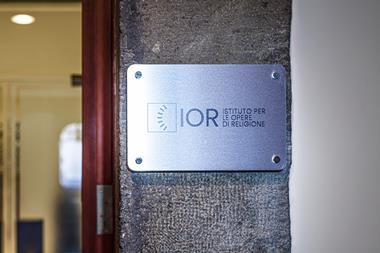Greater Manchester Pension Fund (GMPF), along with Ethos Foundation, Etica Funds and the Missionary Oblates, have filed a shareholder proposal at Cisco Systems calling for greater tax transparency.
The proposal calls for the company to publish a tax transparency report aligned with the Global Reporting Initiative (GRI) Tax Standard, including a tax strategy and a country-by-country breakdown of tax and financial information.
The filing follows the historic vote at Amazon.com in May, which saw a record 21% of independent shareholders in favour of a similar proposal. Microsoft shareholders recently filed a similar proposal.
According to Pensions & Investment Research Consultants (PIRC), Cisco’s global tax strategy document provides insufficient information on governance and risk management. “The document is not fit for purpose, insofar as it does not provide investors with the information to undertake an appraisal of the company’s tax risk appetite,” PIRC said.
Cisco’s approach to taxation has been repeatedly challenged by tax authorities globally. In 2021, TaxWatch alleged that Cisco avoided £68m (€79m) UK taxes in 2019. In 2018, Cisco repatriated $67bn in foreign cash holdings as a result of the US Tax Cuts and Jobs Act.
PIRC said that shareholders need greater transparency to evaluate the risks associated with companies’ approach to tax, and the implications for their long-term investments.
PIRC is supporting the filing of this proposal, as part of a new initiative that is launching today in collaboration with the Centre for International Corporate Tax Accountability and Research (CICTAR).
The initiative will facilitate active engagement with companies in sectors with a history of aggressive tax avoidance, as well as sectors with significant exposure to government contracts and dependent on healthy tax revenue for growth.
Katie Hepworth, responsible tax lead at PIRC, said: “In light of historic reforms to the global taxation system to ensure that companies fairly contribute to the revenue of the countries in which they operate and earn profit, companies must, at a minimum, provide investors with the tools to assess the risks of company tax strategies.”
She noted that Cisco leaves its investors “unable to properly analyse the risks of the company’s tax strategy and the governance frameworks that it has in place to monitor and mitigate these risks”.
Gerald Cooney, chair of the GMPF, said: “Just days after co-filing at Microsoft, the decision was made to file at Cisco for depressingly reoccurring reasons. The current tax strategy is worryingly light on governance and risk management. It doesn’t bode well for its approach to tax, and points to possible wider issues of financial materiality.”
The scheme, he said, will back the calls for Cisco to publish tax reports in line with the GRI Tax Standard, the gold-standard for tax transparency.
“It is imperative that we as shareholders have relevant information to inform our investment choices. Country-by-country tax reporting would introduce some much-needed transparency to a company that has allegedly avoided paying millions of pounds worth of tax,” he noted.
The latest digital edition of IPE’s magazine is now available

















